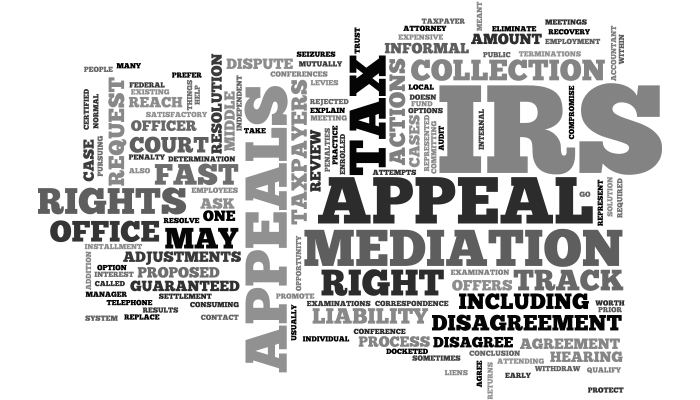
Every year, millions of tax accounts are audited by the IRS. An IRS audit is a result of a mistake in a taxpayer’s return or suspicion of potential tax fraud. Sometimes, you may receive an unfavorable ruling after a tax audit. If your tax account was audited recently and you are not satisfied with the outcome, you have the option to request for appeal in the IRS appeal office. The IRS appeals phone number is inundated with calls from taxpayers seeking to get decisions against them assessed. In many cases, the IRS office of appeals may overturn or at least modify the findings of the audit in their favor. The following is a brief guide to preparing a request for appeal against an IRS decision.
Qualifying for an Appeal
To qualify for an IRS appeal, you must satisfy the following conditions:
- You have received a letter from the IRS that explains your right to appeal the audit outcome.
- You are not in agreement with the IRS’s decision.
- You believe that the IRS has misinterpreted the law and made a wrong decision.
- You believe that the IRS is taking inappropriate collection action against you.
- The facts that the IRS presented during the audit were incorrect.
Must Read : Appeals: The Gateway to Resolving IRS Tax Disputes
Should you fail to provide all the correct information to the agent during the audit or you just can’t afford to pay the taxes, your case may not enter the appeal process.
Filing a Protest
You need to file a formal protest for the IRS appeals office to reconsider the decision. You can file a formal protest if you disagree with a federal tax lien, tax levy, denial, or termination of a payment plan. You need to send your formal protest within the time limit specified in the letter you received from the IRS mentioning your right to appeal the decision.
Filing a Small Case Request
You have the option to file a small case request if the total amount of penalties and taxes for each tax period is lower than $25,000. The total amount of each tax period includes the total unpaid tax amount, penalties, and the interest due. Exempt organizations such as political organizations, religious foundations and nonprofits, ‘S’ corporations (corporations that fall within the subchapter S of chapter of Internal Revenue Code), and partnerships are not eligible for filing small case requests.
Appealing a Collection Decision
If you disagree with a collection action that the IRS has taken against you, you need to select the right collection appeal program (CAP) that relates to your case. CAP has a relatively faster process and is available for many different collection actions such as Liens, Levies, Seizures, Rejection of Installment Agreement, Termination of Installment Agreement, and Modification of Installment Agreement.
Related Blog: Answering 5 FAQs about IRS Tax Lien Assistance
Hiring a Tax Attorney for Professional Advice
Appealing an IRS decision requires following the right filing procedure and presenting paperwork with correct and complete information for your case to enter the appeal process. It is recommended to get help from a tax attorney to understand the IRS appeal settlement guidelines and file your appeal correctly. Tax attorneys have extensive experience in handling IRS tax problems and know how to get favorable outcomes.
The Final Word
When planning to file an appeal against an IRS decision, your best bet is to seek help from a seasoned tax attorney. For IRS tax help in Dallas and nearby areas, look no further than the Law Offices of Nick Nemeth. We have a team of seasoned tax attorneys who have a record of helping clients with their IRS tax problems and getting the most favorable outcomes. To consult with one of our IRS tax attorneys, call (972) 426-2553 or fill out our contact form, and we will take it from there.


